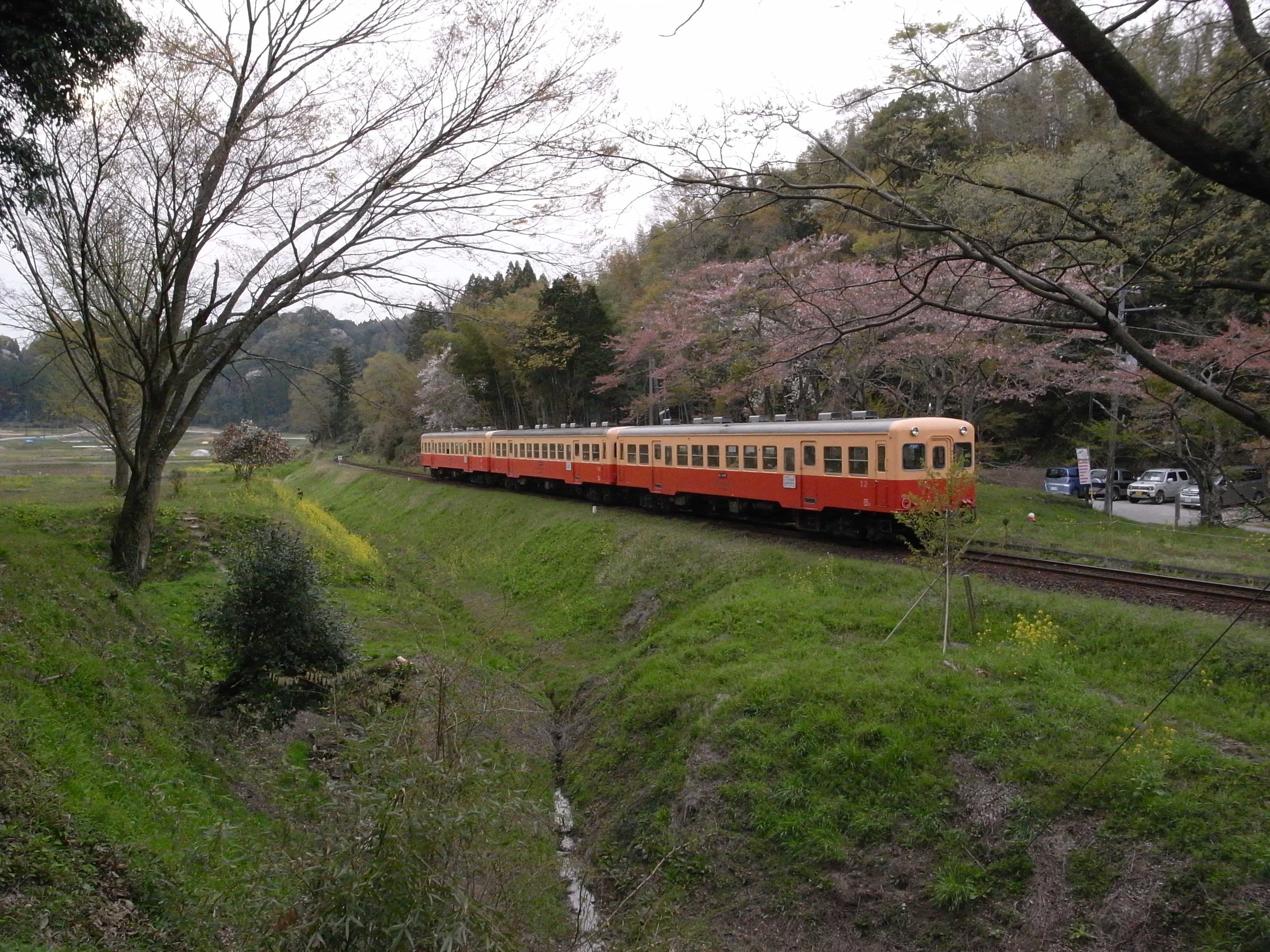Just after the train departs, a passenger falls to the floor. Further down the small train carriage another person follows suit. "Ma'am, are you sane?" questions a female announcer over the loudspeaker. The diesel train chugs forward. A young man asks, "Mom where did you go?" The mother responds, "The next town over." He answers, "Everyone there is sad." A young girl joins in, "It looks like that, but they aren't." The man wonders, "Really?" She replies, "Yes really." Entering Satomi Station a saxophonist, accordionist and guitar player prance onto the train playing wildly — it's all part of the act, in a new performance by Yubiwa Hotel taking place on a picturesque railway ride through the countryside of Chiba Prefecture.
This eccentric journey filled with music, people dancing in the farmlands outside and frequent stops along the way, is the backbone of an arts festival currently running in the remote rural areas of Ichihara City on the Boso Peninsula, just one hour from Tokyo. Life in this region has a certain rustic charm, as Kominato Railway president Shinpei Ishikawa explains, "Satoyama is half nature and half people; in this area life is very close to nature, or it might even be at one with it." But with school closures, depopulation and industrial decline, local leaders realized that they needed to find a creative way to revive the region. After observing the synergy between locals and non-locals revitalizing the countryside of Niigata Prefecture, they invited the curator of that region's Echigo-Tsumari Art Triennale, Fram Kitagawa, to Chiba and together they came up with the idea for the "Naka-boso International Art Festival: Ichihara Art×Mix."
Kitagawa soon became sensitive to the social issues facing the central Boso Peninsula region and chose to include more than just art. In his view eating, sports and other activities help support the "fragile existence" of artworks, so eight cafes and countless events became part of the festival. As he explains, "food is a strong part of people's identity, it protects the land from deteriorating and also fosters self-sufficiency." Locally-grown produce, such as nanohana (rape blossom), is used in the cafes as well as in artworks such as Kana Yoshida's colorful installation work "Mole."


















With your current subscription plan you can comment on stories. However, before writing your first comment, please create a display name in the Profile section of your subscriber account page.